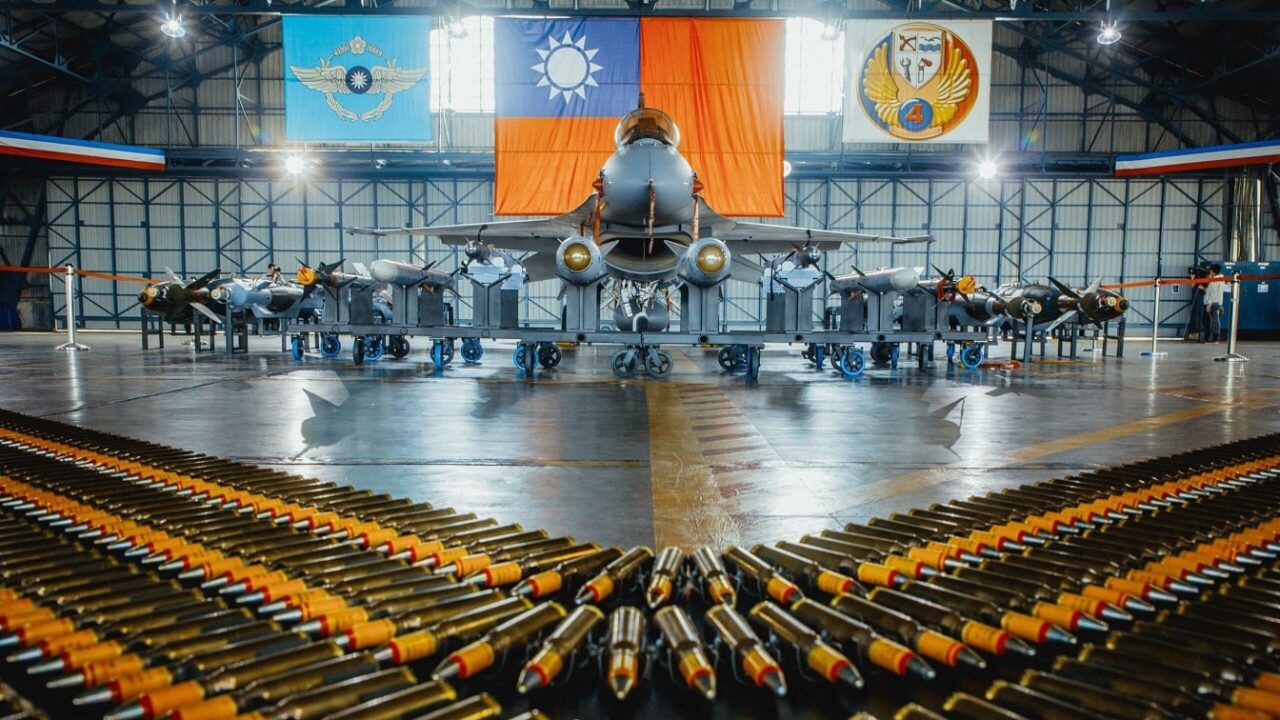Yun Feng, Taiwan’s cruise missile that can hit Beijing: Taiwanese policymakers are sounding more confident about the types of missiles they could use to respond to a Chinese attack. Taiwan’s asymmetric defense strategy has been validated by the way Ukrainians have protected their homeland against Russian marauders. A key element of Taipei’s cross-strait strategy depends on the use of stand-off ballistic missiles and cruise missiles to defend the island if China ever invades.
An Important Capability for Taiwan
One of these munitions is called the Yun Feng (Cloud Peak) medium-range supersonic cruise missile, which pro-independence legislative speaker You Si-kun said could hit Beijing. “Taiwan is not invading China, but China should take Taiwan’s ability to attack Beijing into consideration before launching an invasion,” You said during an online speech given from Taipei in May.
The Yun Feng is an indigenously produced weapon that can travel 3,400 feet per second with its ramjet engine. Its range is up to 1,242 miles, depending on the variant. The warhead is about 500 pounds of armor-piercing high-fragmentation material.
Taiwan began developing the cruise missile in 1996 through the National Chung-Shan Institute of Science and Technology. It entered service in 2014. By 2019 there were 20 Yun Feng missiles and 10 mobile launchers.
While the Yun Feng gives Taiwan an important capability, they probably cannot produce enough of the missiles to change the military balance in the Taiwan Strait. Taiwan would need hundreds if not thousands of cruise missiles. But it is interesting that Taiwan’s political leaders are not shying away from hawkish rhetoric.
You continued his broadside against China during the speech. “Taiwan could use anti-ship missiles such as the Hsiung Feng III (Brave Wind III) against Chinese naval forces crossing the Taiwan Strait,” he said, adding that “if Chinese vessels managed to land, Taiwanese should have the determination to fight like the Ukrainians during Russia’s invasion of their country.”
Take the Rhetoric Down a Notch
Not every politician agrees that Taiwan should be so brash in discussing relations with China. Some are wary that the hawks’ rhetoric will further inflame tensions with the mainland.
However, Taiwan has a right to self-governance and sovereignty. To maintain these requires a defense industry energized for its basic mission of helping Taiwan protect itself. A cruise missile that can reach Beijing is a start in the right direction for those who believe it is time for a rejuvenated mission of self-defense.
Taiwan Has to Sharpen Its Asymmetric Capabilities
Taiwan is still woefully unequipped to handle an amphibious invasion. China would probably start with a shock-and-awe bombing campaign, using its own huge arsenal of land-attack ballistic and cruise missiles. It would also send wave after wave of warplanes that would include fighters and bombers, along with electronic warfare airplanes to neutralize Taiwan’s air defenses and even attack the island’s cities.
The best Taiwan can do is improve its armed forces, work on asymmetric tactics, train repeatedly with the modern systems, and keep communicating with the United States about its defense needs. It is good that some politicians are exhibiting confidence and not defeatism – something that Taiwan’s lawmakers have learned from Ukraine’s president, Volodymyr Zelenskyy. But it is also important to be realistic about capabilities as Taiwan plans how to protect its homeland.
Now serving as 1945’s Defense and National Security Editor, Brent M. Eastwood, PhD, is the author of Humans, Machines, and Data: Future Trends in Warfare. He is an Emerging Threats expert and former U.S. Army Infantry officer. You can follow him on Twitter @BMEastwood.

